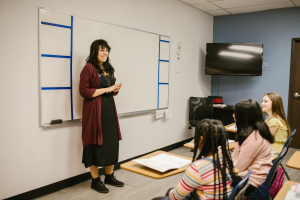Top 10 Most Asked Music Teacher Interview Questions with Answers
You may need to go through numerous rounds of interviews before being offered a position as a music teacher, so it is crucial that you be ready for any ... read more...questions that may be posed to you. In this article, Toplist shares some of the Most Asked Music Teacher Interview Questions with Answers. Being ready for inquiries like these will help you land your ideal position as a music teacher.
-
Being a teacher in any subject demands some level of preparation, and music is no exception - in many respects, the bar is higher. For this question, you'll need to showcase your educational background as well as your teaching experience. You could also discuss your musical experiences outside of the classroom, such as any performing groups you have joined.
Most schools demand a Bachelor of Arts in music education or a similar equivalent degree if you want to teach in an educational institute. Pick a college or institution that offers advanced musical training as well as a comprehensive teacher preparation program that meets the standards for teaching music to students of all ages. Most undergraduate programs include courses in music theory and history, performing, ensemble, and conducting. You will also study about general education themes like classroom instruction and student evaluation, as well as musical education issues like lesson planning for music, instrument-specific instruction, and teaching music appreciation.
After finishing your music educator preparation program, you must meet the requirements of your state to acquire your teaching certificate. Each state's criteria for educators may vary. Passing various tests, such as the CTET (Central Teacher Eligibility Test) and the SET (State Eligibility Test), that assess your teaching abilities and topic knowledge, may be required. Several states also require teachers to take periodical tests to assess their skills and knowledge, as well as to continue their education in order to understand the most up-to-date classroom and music teaching techniques.
Example:
I earned degrees in Choral Performance and Music Education from the Beechwood Music Institute and have worked as a music faculty member at Callison State University for the past ten years. I've directed multiple choral groups at national conferences and was honored by Maestro Monthly for my work with a collegiate symphonic performance. In addition to teaching, I have been a member of the Ozark Community Chorus for the past five years.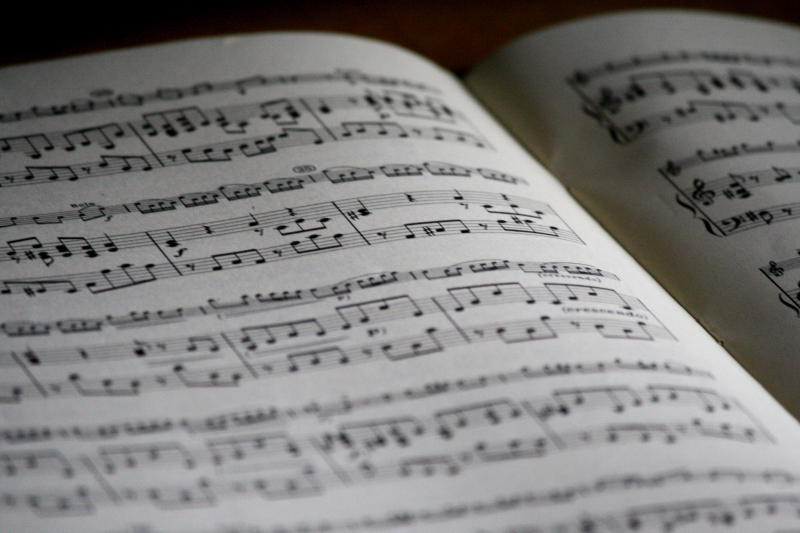
Image by Pixabay via pexels.com 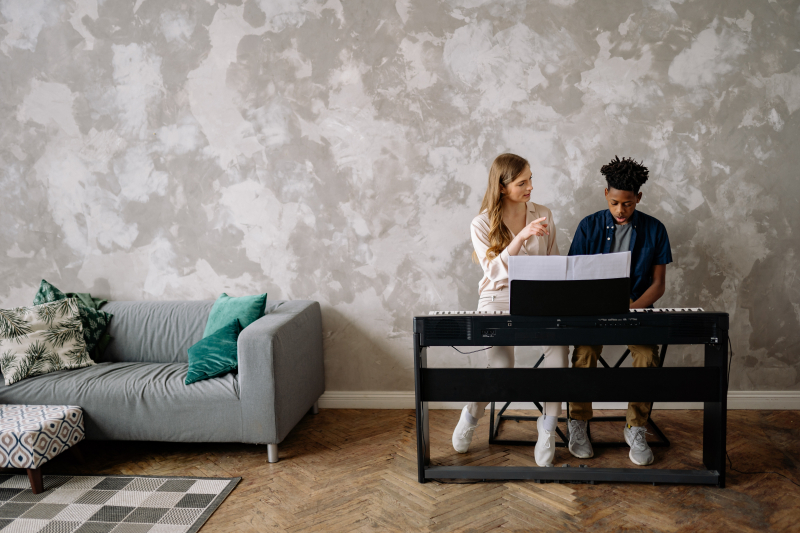
Image by Yan Krukau via pexels.com -
Technology has advanced rapidly, and its uses in the music classroom have not gone unnoticed. Although you would not assume music education and technology go together, they do in many ways. Music teachers recognize the benefits of employing music in the classroom, from fundamental elementary classrooms to advanced orchestras. Any teacher would tell you that technology saves the most valuable resource of all: time! Technology advancements have made it possible for all teachers to organize courses, grade student work, and communicate more quickly and easily. Yet, in addition to saving time, integrating technology in the classroom provides music teachers with a few more bells and whistles.
Technology is an integral aspect of the educational experience for students. Companies ask this question to ensure that you have a basic understanding of how technology works in the classroom and how comfortable you are with it. Explain in your response that you are familiar with the fundamentals of using technology in the classroom. Mention any unique applications or apps you've used in the past. You may also emphasize that even if you only have one device, there are some amazing things you can accomplish. You could indicate that you want to learn more about music technology by visiting conferences and events and completing online music technology professional development courses.
Example:
I have substantial classroom technology experience. Incorporating technology into music education is critical, in my opinion, for engaging students and assisting them in reaching their full potential. In my present role, I develop interactive classes and activities using many digital tools. In addition to traditional teaching approaches, I enhance them using online resources such as YouTube videos and audio recordings. In addition, I am familiar with using software applications such as GarageBand and Sibelius to assist students in writing and recording creative music. Finally, I am skilled at developing virtual classrooms in which students from all over the world may collaborate on assignments.
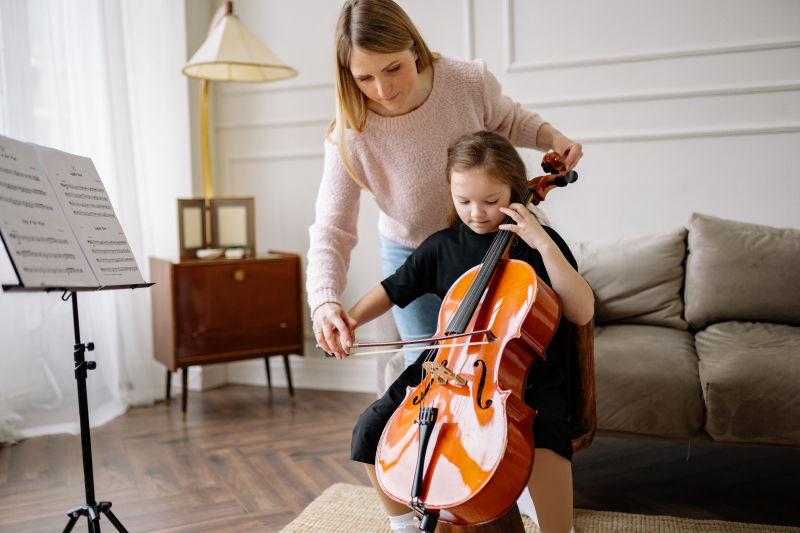
Image by Yan Krukau via pexels.com 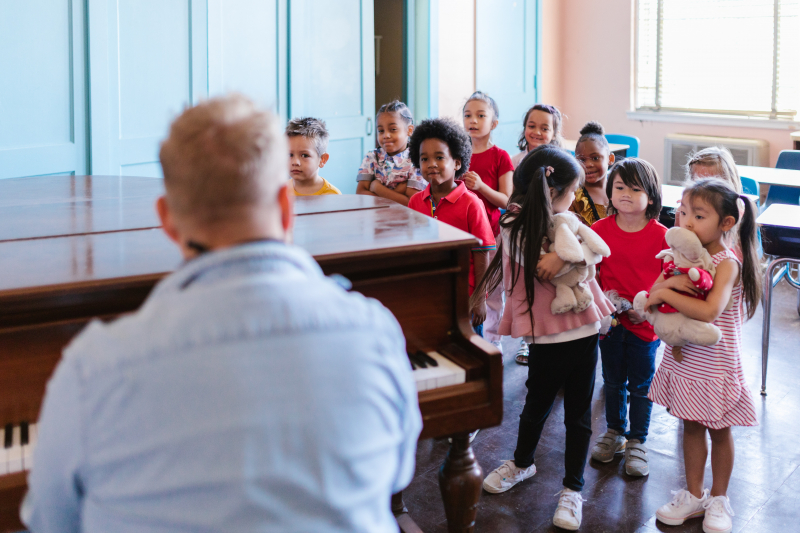
Image by RODNAE Productions via pexels.com -
When it comes to music, everyone has diverse influences that have helped develop their musical taste. For some, it may be the artists they grew up listening to with their parents. Others may be artists they discovered on their own and connected with on a personal level. Whatever your musical influences are, they most likely play a significant impact on the music you like listening to today.
Musical influences are the sounds that musicians use to produce their music. They can be anything from other artists' music to natural noises, and they can be blended in whatever way the creator deems fit. Artists can create something unique while still retaining a familiar vibe by pulling from several sources. This can be a terrific method to connect with fans because they may recognize their favorite music in the artist's work.
Some schools may be recognized for a specific style or age of music and will seek candidates who fit that description. For example, if a school is recognized for classical choral performance, someone with a background solely in modern music may not be considered. Don't write yourself off if you don't think you're a good fit. Be truthful about your background and how you believe it relates to the school.
Example:
The Romantic age of music has a special place in my heart, but my favorite musicians are Stravinsky, Tchaikovsky, and Wagner. I find that when a piece of music conjures up a broad environment of feeling, I can relate to it, and I enjoy the feeling of becoming lost while playing a big, booming piece. I've participated in and led performances of Stravinsky's The Firebird Suite. That is without a doubt my favorite piece. The way the plot develops and the overall mood of the piece are both magnificent.
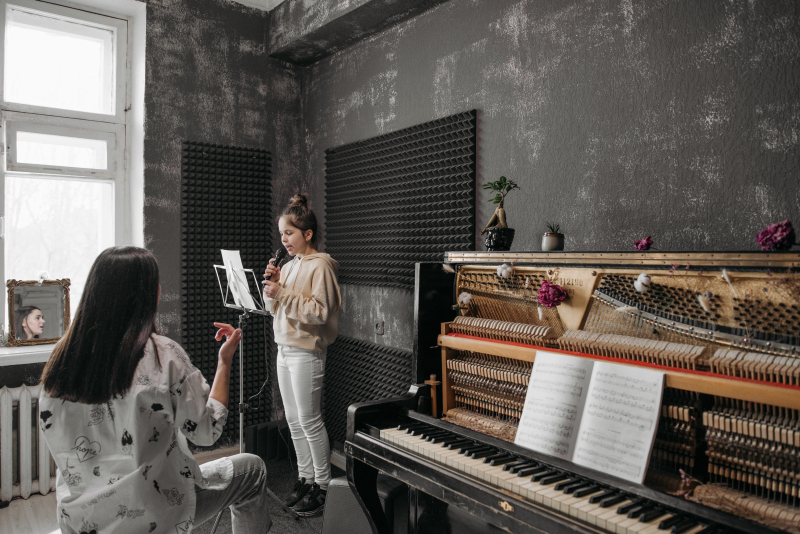
Image by Pavel Danilyuk via pexels.com 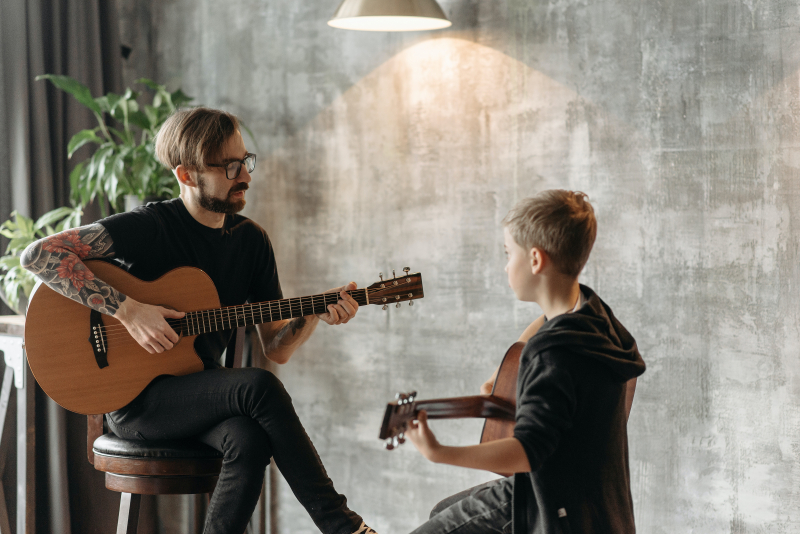
Image by Pavel Danilyuk via pexels.com -
It is no secret that those who enjoy classical music and people who prefer popular music are very different in the world of music. While many people enjoy both genres, a large portion of people feels that they must pick between the two. To develop a student of music who is well-rounded, all forms of music are necessary, and the interviewer will likely want to make sure that pupils receive a comprehensive and well-rounded music education.
For this question, you can answer that you make time for both. You shouldn't disregard listening to different types of music just because you might be more tempted to do so with one. If you prefer pop music over classical, set aside some time each week to explore it, and vice versa. Making your equilibrium is another response to this query. It is impossible to strike the "perfect" balance between classical and popular music. Create a blend that you appreciate and go with what feels appropriate for you. By following these tips, you can easily answer the question of how to balance classical music and popular music in your life.
Example:
I would incorporate a thorough study of musical history in my lesson plans and ensure that students are exposed to music from a variety of periods, including classical and modern. Orchestral compositions, choir works, jazz, and contemporary popular music would all fall under this category. In order to improve their ability to express themselves as performers, it would also allow students to determine which style or instrument best suits them.

Image by Yan Krukau via pexels.com 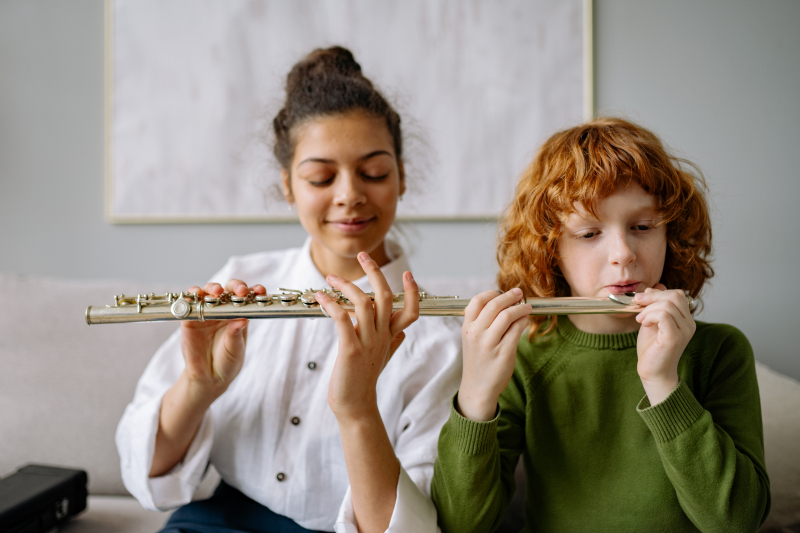
Image by Yan Krukau via pexels.com -
Music teachers have an essential role in influencing their students, starting with a well-structured lesson plan. This may not be restricted to time in class before the bell sounds; some schools may ask you to keep office hours after school, conduct tutoring courses, and offer intense options to both strong performers and children who struggle to learn. You might mix any of these parts for this question to describe your perfect lesson plan.
Come to the interview prepared to discuss a specific lesson, unit of work or rehearsal strategy that has worked effectively in the past. If you have never taught before, you could explain a class or rehearsal you ran during your teaching placement. You can discuss your lesson objectives, how the lesson went with the students, and the results. Provide an example lesson plan and student work from your portfolio if possible.
Example:
I always begin the school year with a combined choral and orchestral concert and spend the first three weeks of each session making sure that every kid is paired with the appropriate instrument and position. Everyone, regardless of prior experience, performs the identical audition piece, and I evaluate each student's performance for both technical proficiency and aesthetic expression. After that, we'll move on to my favorite lesson to teach: the first run-through of Handel's Hallelujah Chorus. This is a well-known piece that allows me to observe where kids excel and struggle and can assist me in determining the strengths and weaknesses of each group.
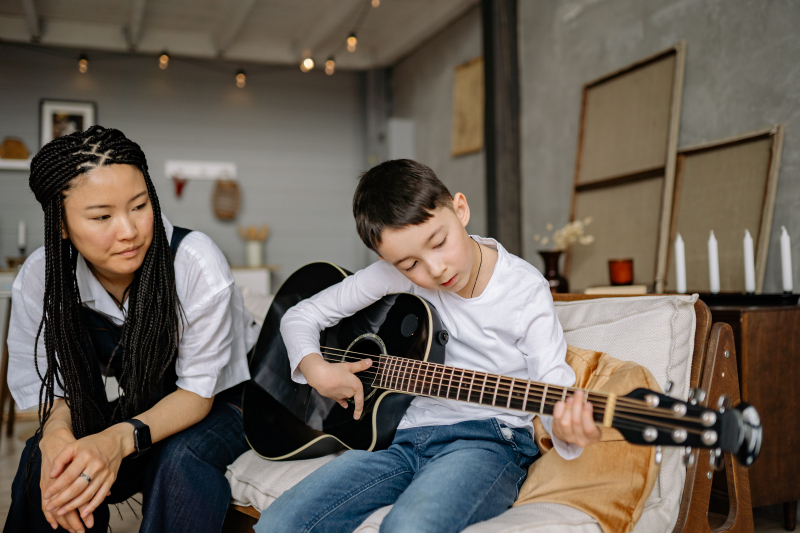
Image by Yan Krukau via pexels.com 
Image by Ksenia Chernaya via pexels.com -
The interviewer may ask this question to learn more about your classroom management abilities. When responding, it can be beneficial to focus on the actions you took to chastise a kid and how this helped them improve their behavior. This can be seen as one of the Most Asked Music Teacher Interview Questions with Answers.
While interviewing you about your strategy and offering hypothetical instances can assist the interviewer to acquire knowledge, they may also want examples from you that demonstrate your effective management. They may require documentation of your experience in classroom management to better understand your suitability for the post. To answer this question, choose an instance in which your classroom management helped students focus on learning and growth and describe what you did.
Example:
I recently had to reprimand a kid who was misbehaving in my music lesson. The student was talking and not paying attention during class, which disrupted the learning experience of the other students. I approached the student privately and explained why their behavior was wrong and how it was affecting the rest of the class. I also reminded them that they were required to follow the rules of the classroom. Following this chat, the student apologized for their conduct and pledged to obey the guidelines in the future.
I followed up with an email to both the student and their parents describing our chat and expectations to ensure that they understood what was expected of them. This allowed me to maintain open lines of communication with everyone concerned and ensured that the student understood exactly what was expected of them going ahead.
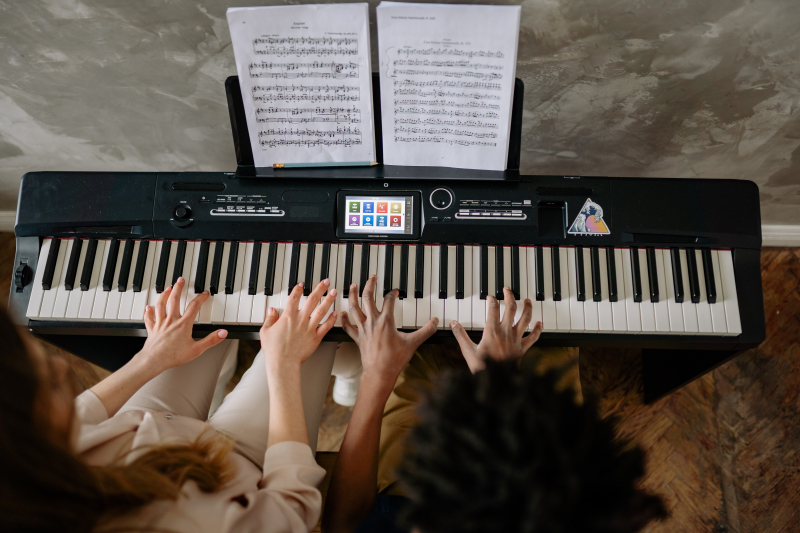
Image by Ksenia Chernaya via pexels.com 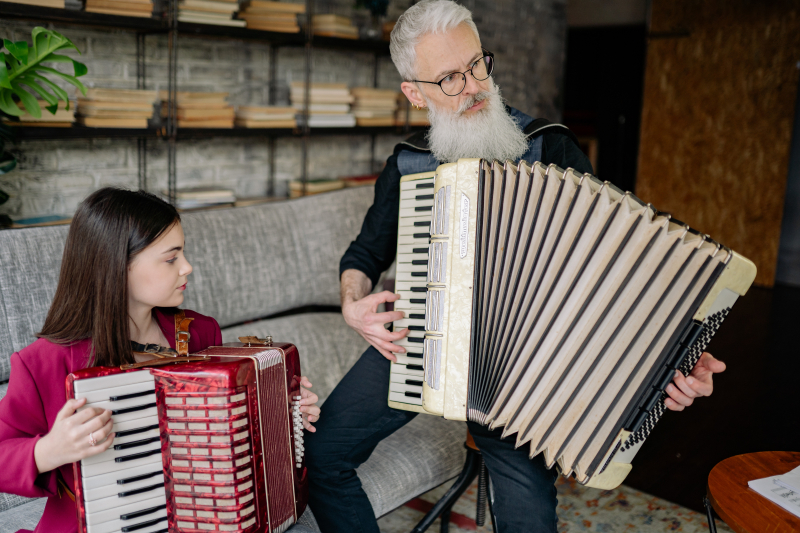
Image by Ksenia Chernaya via pexels.com -
This can be seen as one of the Most Asked Music Teacher Interview Questions with Answers. Students who are learning to play an instrument or sing a song are frequently worked with by music teachers. These questions assist the interviewer in understanding how you can support your pupils and assist them in overcoming obstacles in their music classes. You can utilize examples from previous teaching experiences to demonstrate how you assisted pupils in learning new skills or overcoming barriers.
Although practicing alone can be a crucial component of learning an instrument, there is plenty of opportunity for contact in the music classroom. Collaboration in the classroom has been shown to offer many advantages. You ought to elucidate how important it is for people to collaborate in the workplace. This needs to be covered in school-based education, it is crucial. In conjunction with teaching them music, you would educate kids on how to work together. Whether it be among performers or listeners, music is inherently convivial. Compared to studying alone, learning with others can be far more effective.
Example:
When I meet a student who is having difficulty learning an instrument or a song, the first thing I do is assess their existing level of knowledge and understanding. This assists me in identifying any holes in their skill set that need to be filled. I may then modify my teaching method to best meet their unique needs once I've discovered the areas where they're struggling.
I believe it is critical to foster a supportive and encouraging environment for students who are suffering. I make an effort to provide positive reinforcement and constructive feedback so that they feel encouraged and inspired to continue. I also make certain that tough subjects are broken down into smaller, more manageable portions so that they do not become overwhelmed. Finally, I employ various teaching approaches such as visual aids, games, and repetition to assist them in better understanding and remembering what they are learning.
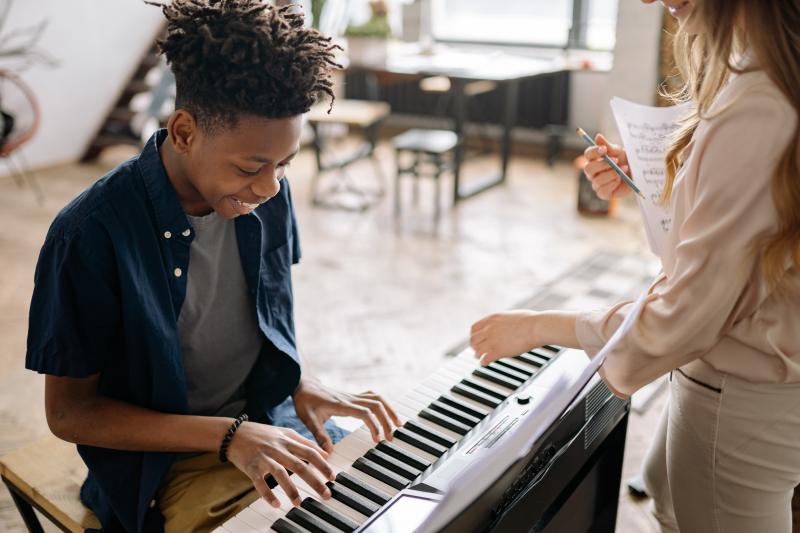
Image by Yan Krukau via pexels.com 
Image by Antoni Shkraba via pexels.com -
Music is said to be soul food. Learning to play a musical instrument at a young age benefits children in numerous ways. It boosts their confidence and teaches them dedication and patience. Children, on the other hand, cannot profit from these advantages just by sitting in music courses and nodding along. In order to reap the full benefits, children must actively engage with music.
Music practice is a creative endeavor. Learning to play an instrument helps a child's creative side tremendously. The music teacher, no matter how much they annotate a work, cannot properly convey how a piece of music should be played. As a result, it is up to the learner to put their imprint on a piece. Every time your children pick up their instrument to practice anything, they will have to put a little bit of themselves into it. This provides children with a safe and controlled outlet for their innate creativity.
Example:
Some schools do not require students to learn music or play an instrument. In my opinion, though, learning to play a musical instrument, such as the piano, is essential for primary school pupils. It exposes kids to the arts from an early age. Also, learning is good for a child's brain development. Music, as researchers and psychologists have repeatedly demonstrated, makes you brighter, happier, and more productive. Listening to music is beneficial, but actively playing musical instruments is even more so. Playing a musical instrument alters the functioning of the brain and, without a doubt, increases cognitive abilities. Music activates the hippocampus, a critical component of the brain that optimizes brain health and improves memory and mood, according to brain scans of artists.
Learning to play a musical instrument helps define your personality, which is especially important for junior form students. It teaches children important skills such as time management, responsibility, and how to balance their education with extracurricular activities. Finally, learning to play a musical instrument teaches patience and perseverance. When students concentrate on playing a piece of music, their attention span expands, which is beneficial while trying to pay attention in class or studying for an exam. Everyone in primary school should learn to play at least one musical instrument.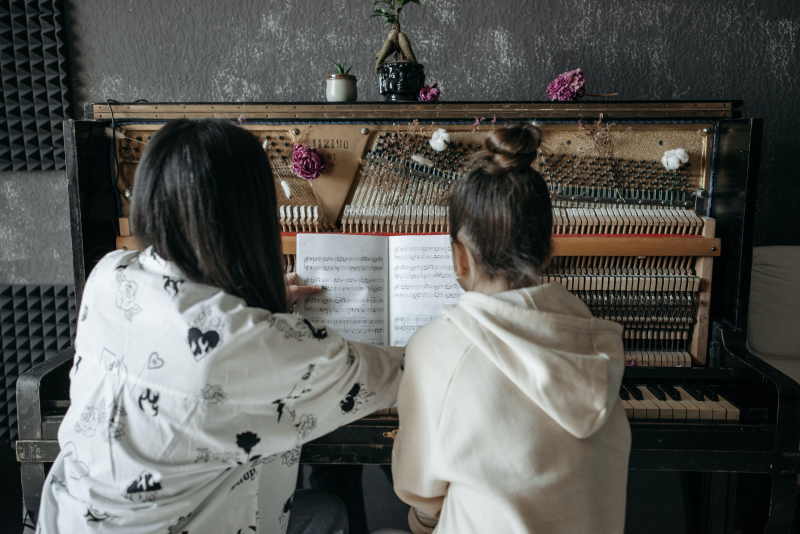
Image by Pavel Danilyuk via pexels.com 
Image by Pavel Danilyuk via pexels.com -
No two students are alike. Some people are natural at their chosen instrument, while others may need more instruction. This question may be related to lesson planning or student recruitment, as you will most likely be working with at least one student per year who has never performed before. Be prepared to discuss all aspects of the ability spectrum.
You may be wondering how a single teacher can provide such specialized help to a class of 30 kids. Even the most experienced teachers may perceive it as a daunting and unachievable endeavor. Nevertheless, as someone who has taught in multi-age and multi-grade inclusive classes for many years, I can promise you that there are numerous techniques for educating pupils with such a diverse set of requirements! So you can give some specific measures that you could use in the class such as beginning with the right mindset, creating a classroom that welcomes all learners, looking at the over-arching themes for the curriculum you are working with, or knowing where your students are at academically and know where they can go.
Example:
I know this school has a history of producing nationally recognized vocalists. I have followed success stories from this school that have gone on to Juilliard, Florida State, and other major programs across the country, and I am excited to contribute to the success of this program. For those students who seek this kind of outcome for their musical education, I will make sure to prepare them for this kind of success. However, it takes all kinds of students to make a successful music program, and I will also ensure that every student has the chance to not only earn a good grade but also find a deeper love and appreciation for music in their lives.
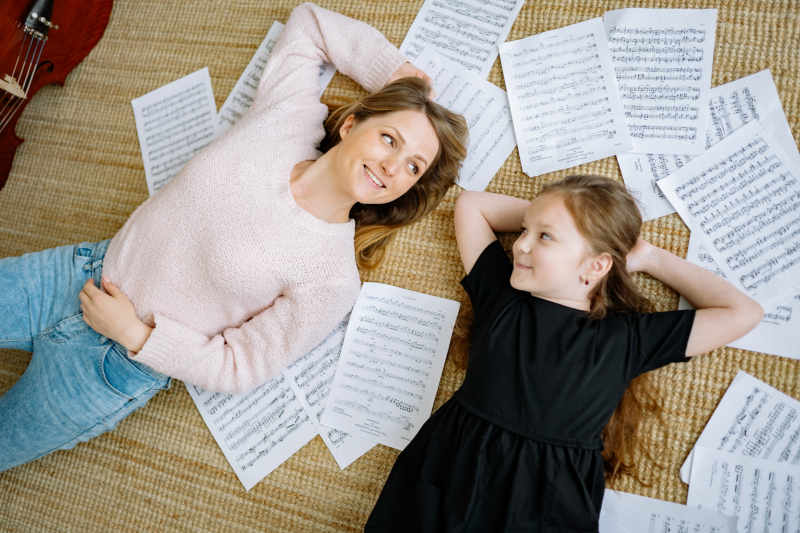
Image by Yan Krukau via pexels.com 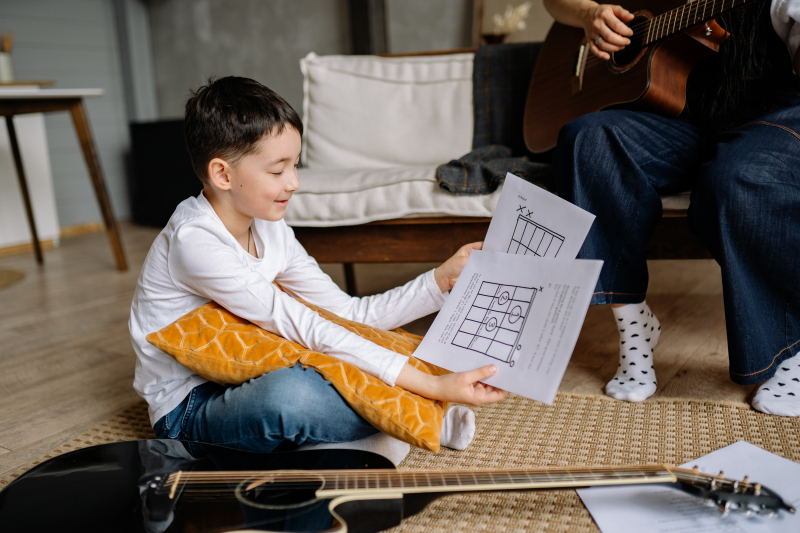
Image by Yan Krukau via pexels.com -
This question can assist an interviewer in understanding your music education philosophy. It also allows them to judge whether your approach to teaching is similar to that of their school. When answering this question, it can be beneficial to discuss a specific ability and how it has benefited you in your life.
Learning to play a musical instrument provides youngsters with the obvious benefit of learning how to make music and use their instrument. It is very gratifying and joyful in and of itself, but most musicians will tell you that studying music has taught them a variety of important life skills. Music studies necessitate discipline, hard work, and creativity in children. Learning music, on the other hand, can be used as a personal development tool to help individuals refine the abilities they currently possess. It can also allow children to practice skills that they will need in later life.
Example:
Self-expression, in my opinion, is the most crucial ability to master through music. We may express our feelings and thoughts through music in a way that is impossible to do with words. It can be used as a release for any emotion we could be feeling, including stress, excitement, and despair. Students can write their music which allows them to express themselves in a way that is significant to them by learning how to play instruments, read musical notation, and comprehend musical theory.
I believe that using music to teach endurance and discipline is just as vital as encouraging self-expression. Students learn important lessons about commitment and hard work from the effort and practice required to learn an instrument. For my pupils to be able to apply these beliefs to all facets of their lives, I work hard to implant these values in them while I am teaching.
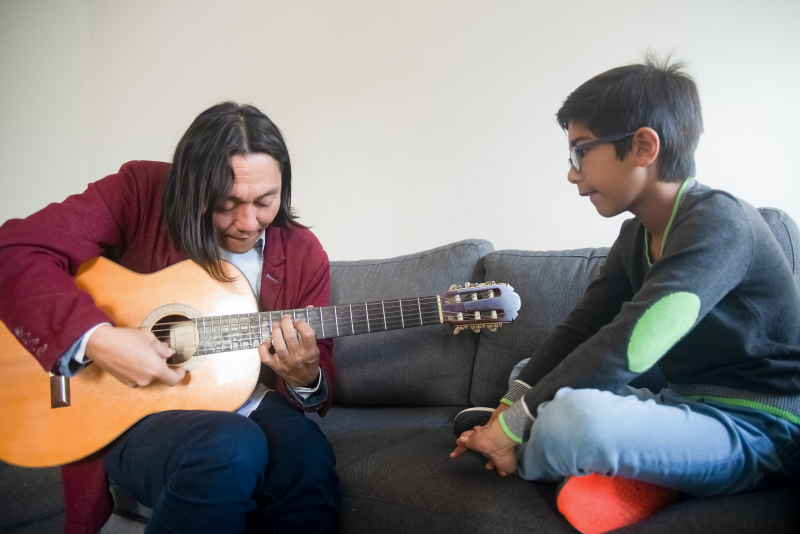
Image by Kampus Production via pexels.com 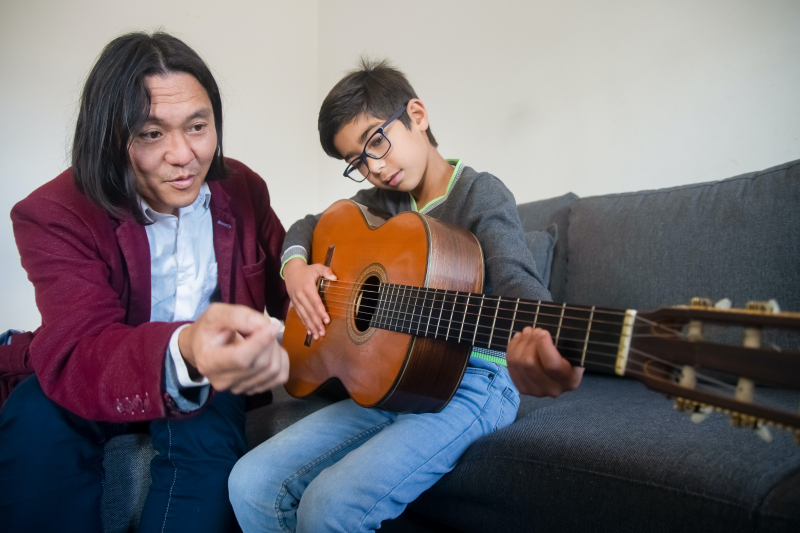
Image by Kampus Production via pexels.com















